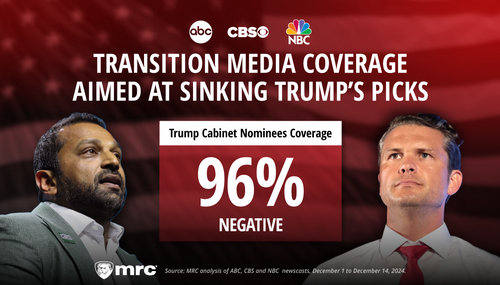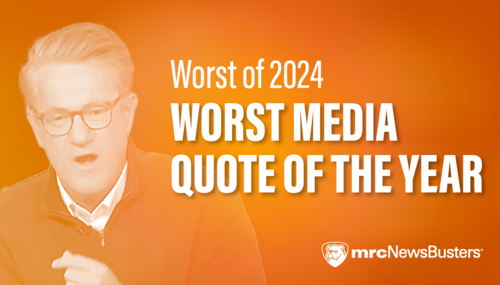 Over at the reliably pro-Biden MSNBC, the tone of a recent report on the retail landscape could best be described as: “At least the economy hasn’t completely collapsed, isn’t that great?”
Over at the reliably pro-Biden MSNBC, the tone of a recent report on the retail landscape could best be described as: “At least the economy hasn’t completely collapsed, isn’t that great?”
On Tuesday, MSNBC Reports host Chris Jansing compared some key metrics from the 2021 and 2022 holiday shopping seasons. As she reported, according to a Mastercard SpendingPulse report, “retail sales were up 7.6 percent this holiday — but, of course, there were higher higher prices thanks to inflation.”
So if both spending and inflation were up in 2022, the question was, how well had retailers actually done? Jansing posed that question to NBC News business and data reporter Brian Cheung: “How much of this is, ‘sales are actually up,’ and how much of it is, ‘inflation, so things cost more?’”
Cheung revealed that, based on the available data, the bigger figures in 2022 were largely due to inflation. “When you consider that everything is more expensive this year, and those types of measures are looking at the dollar amount, it’s essentially a wash,” he explained. “It’s not necessarily as good as the numbers look.”
Jansing sprinkled a positive spin on his description: “I mean, is it too far to say, ‘Well, at least consumer confidence hasn’t tanked?’”
Cheung, perhaps aware of what network he was on, kindly agreed with Jansing’s framing, at least initially: “Yeah, no, it certainly hasn’t.” But he continued:
You’re starting to see signs that consumers are getting a little bit more conservative, a little bit more mindful about how they’re spending. And one example is that, if you take a look at how Americans are kind of opening their wallets in the Black Friday peak holiday season, you’re seeing that they’re — they have the same budget as they did last year… But again, because of inflation, that’s gonna stretch across fewer gifts.
Despite Cheung’s explicit reference to inflation as the major contributing factor to decreased consumer confidence, Jansing pivoted instead to interest rates: a factor controlled by the Federal Reserve, rather than by her favorite political party.
“Do we know how much of that, if, again, people are starting to feel like they need to tighten their belts a little bit, how much of that might be related to interest rates? If people are not paying off every month knowing that their credit card interest rate may be a little higher?”
Cheung eagerly agreed, noting that “credit card interest rates are at a record high.” Never mind that interest rates are high everywhere due to inflation.
In closing, he described the “overall retail sales” situation as “pretty okay, but not all that great, but not all that bad either.”
We’re not saying he did it consciously, but it’s kind of entertaining that Cheung’s summary obeyed the grade school-era advice of sandwiching a criticism in between two compliments. (Do they still teach that in first grade or was it replaced more with a queer theory-compliant version?)
Jansing was likely aware that the average consumer is getting hit too hard to stomach a report on the economy that paints everything in sunshine and rainbows. So instead, she made a few uncomfortable admissions here and there but couched her report in an overall sentiment of “Hey, things could be worse!”
One can’t help but wonder if that incredibly generous representation of a sputtering economy had anything to do with which party the current President belongs to.




